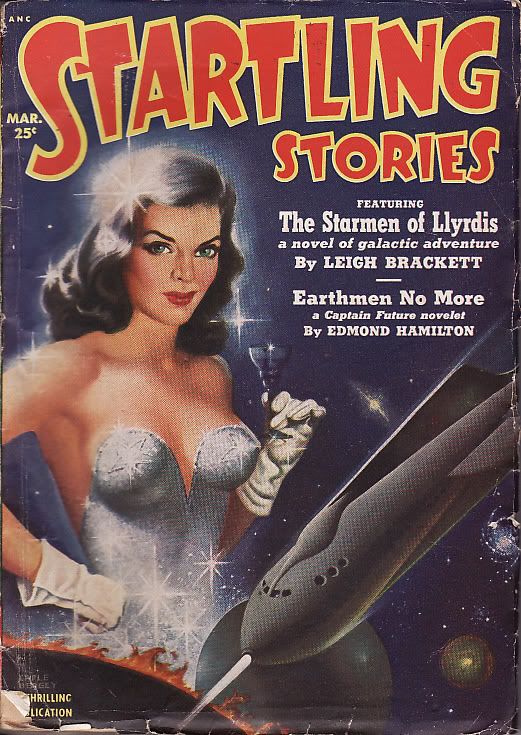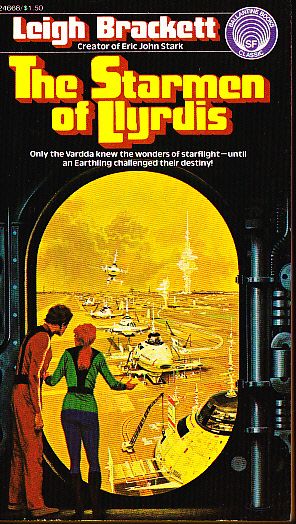Hi, J-Sun.
My immediate reaction is to disagree with you about "The Hill and the Hole," but it's been long enough since I read it that I can't recall why I disagree.
I hate when that happens.
Hi, Yeah, it happens to me a lot - I'm bad with story titles and even when I can connect them, I often remember my reactions to stories better than the stories themselves.
It's also been awhile since I read "Girl" but not long ago I was thinking it seemed prescient. At the time of writing, there were young women like the Gabor sisters who might have sparked some thoughts along the lines of people achieving fame by being famous for being famous and what if they could actually feed on that; but with the advent of the Internet and social media there's been an abundance of young women who could be her, from Paris Hilton to the Kardashians to Lindsay Lohan, the attention and craving for their "glamor" in turns feeds them in some way and seems to perpetuate a pattern.
Yep, good points - I hadn't even thought of specific timely references like that - but that's on "the girl" angle - I thought Leiber did a great job also talking about the men who do and don't do the "feeding", as well.
If you're of a mind, there is an even more dyspeptic story that I think used "Girl" as a model, "The Kind Men Like" by Karl Edward Wagner. I found it hard to take. Written in the 1980s, it could be more graphic, though I don't think Wagner overdid with this one, it follows a similar logic in later circumstances.
Thanks for the tip - it sounds interesting and I'll try to keep it in mind.
***
I said awhile back that I regarded Varley's
The Persistence of Vision and
The Barbie Murders as essential collections. I can add
Blue Champagne to the list. For a long time I didn't make a point of getting it because I thought, "Ah, I've got half of it," but then I got to thinking, "But it is Varley... and it is two novellas and a couple of stories... and the novellas are "Eight Worlds/Anna-Louise Bach" stories," so I finally gave in and got it.
"Blue Champagne" is just a "hand of a master" story in that you start out a little confused but interested and before you get too confused or impatient he gradually reveals or explains things until the strange and unfamiliar becomes home. It's an emotional story without being sentimental or mawkish. It's got brilliant ideas large and small - from amazing space habitats to fascinating prosthetics - without being too "wiring diagram". Interestingly, Bach - who is in about five stories, all told, is really the third banana in this story which gives an interesting perspective. She's still a complex and rounded character and doesn't particularly like one of the others and comes to have problems with both, so you can see them in both positive and negative lights and see how it's largely perspective. The core characters are the feelie star and the lifeguard and the primary concern is their unlikely love affair and how it might be bottled and sold. My only real problem with the story is that I felt the last paragraph was a bit too much of the narrator telling you what to think when the story was already done and the reader was perfectly capable of making his own mind. But that doesn't seriously impair a great story which reminds me of "The Persistence of Vision" in a couple of ways.
That was written in 1981 and the next story in the collection,
"Tango Charlie and Foxtrot Romeo", was written in 1985 and picks up a few years after the last one left off. I'm unlikely to forget Charlie, who we meet as a young girl living on the quarantined space station, Tango Charlie. Definitely not your usual protagonist. There is an infodump/synopsis of "Blue Champagne" in "Tango Charlie" which is an odd choice as it was written specifically for this book, so is telling us stuff we already know but nowhere near as well as the first time - you could say the synopsis makes it stand by itself but it doesn't really, as the synopsis is insufficient. And, as far as the story itself, it has a sort of perplexing main resolution although the very end ending makes sense. But there are things that happened in my life while reading it that probably make me unable to see it clearly anyway. Still, it was a good and worthwhile story, even if I liked "Blue Champagne" by far the best.
Together these make up a mini-novel of 137 pages and are worth a book all by themselves. I love how energetic these stories are and, I have to admit, there's a bit of the "good old-fashioned future" to them - there's a smartass computer, sure, but there's not a whiff of godlike AI or The Singularity or posthumanity or fantasy or anything - just a vividly imagined and socially different future of real habitat structures and human lives.
There are also a couple of lesser, shorter stories in "The Manhattan Phone Book (Abridged)", a story you could fault for being a bit of a rant, but a very vivid one, and "The Unprocessed Word" which is a somewhat longer rant against word processors - "No thanks! I'd rather read a VarleyYarn®!" - which was amusing enough. There are also what I recall as being the very good "Options" and the nifty black hole tale, "Lollipop and the Tar Baby" and, oh yeah, a couple of Hugo/Nebula winners in "Press Enter[]" and "The Pusher". I didn't re-read any of that this time, though, as I'm in a hurry. But all are worth a re-read and I ordinarily would.








